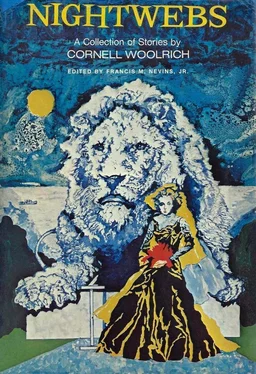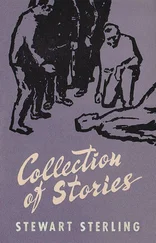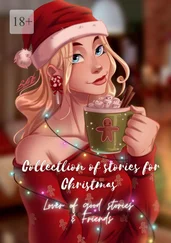The voice of one of the police-officials penetrated my numbed senses, seeming to come from far away. “This man — your husband—” he was saying to my mother — “was buried alive, and slowly suffocated to death — the way you see him — in his coffin. Will you tell us, if you can—”
But she dropped at their feet in a dead faint without uttering a sound. Her agony was short, merciful. I, who was to be the far greater sufferer of the two, stood there frozen, stunned, without a whimper, without even crying. I must have seemed to them too stupid or too young to fully understand the implications of what we were looking at. If they thought so, it was the greatest mistake of their lives.
I accompanied them, and my mother, back to the house without a word. They looked at me curiously once or twice, and I overheard one of them say in a low voice: “He didn’t get it. Good thing, too. Enough to frighten the growth out of a kid that age.”
I didn’t get it! I was frozen all over, they didn’t understand that; in a straight-jacket of icy horror that was crushing the shape out of me.
Mother recovered consciousness presently and — for just a little while, before the long twilight closed in on her — her reason, sanity. They checked with the coroner, the death-certificate was sent for and examined, they decided that neither she nor he was to blame in any way. She gave them the name of the undertaker who had been in charge of the burial preparations, and word was sent out to arrest him and his assistants.
Fate was kind to her, her ordeal was made short. That same night she went hopelessly, incurably out of her mind, and within the week had been committed to an institution. Nature had found the simplest way out for her.
I didn’t get off so easily. There was a brief preliminary stage, more or less to be expected, of childish terror, nightmares, fear of the dark, but that soon wore itself out. Then for a year or two I seemed actually to have gotten over the awful thing; at least, it faded a little, I didn’t think of it incessantly night and day. But the subconscious doesn’t, couldn’t, forget a thing like that. Only another, second shock of equal severity and having to do with the same thing, would heal it. Fighting fire with fire, so to speak.
It came back in my middle teens, and from then on never again left me, grew steadily worse if anything as time went on. It was not a fear of death, you must understand; it was a fear of not dying and of being buried for dead. In other words, of the same thing happening to me some day that happened to him. It was stronger than just a fear, it grew to be an obsession, a phobia. It happened to me over and over again in my dreams, and I woke up shivering, sweating at the thought. Burial alive! The most horrible death imaginable became easy, preferable, compared to that.
Attracted by the very thing I dreaded, I frequently visited cemeteries, wandered among the headstones, reading the inscriptions, shuddering to myself each time: “But was he — or she — really dead? How often has this thing happened before?”
Sometimes I would unexpectedly come upon burial services being conducted in this or that corner of the grounds. Cringing, yet drawing involuntarily nearer to watch and listen, that unforgotten scene at my father’s grave would flash before my mind in all its pristine vividness and horror, and I would turn and run as though I felt myself in danger then and there of being drawn alive into that waiting grave I had just seen.
But one day, instead of running away, it had an opposite effect on me. I was irresistibly drawn forward to create a scene, a scandal, in their solemn midst. Or at least an unwelcome interruption.
The coffin, covered with flowers, was just about to be lowered; the mourners were standing reverently about. Almost without realizing what I was doing, I jostled my way through them until I stood on the very lip of the trench, cried out warningly: “Wait! Make sure, for God’s sake, make sure he’s dead!”
There was a stunned silence, they all drew back in fright, stared at me incredulously. The reading of the service stopped short, the officiating clergyman stood there book in hand blinking at me through his spectacles. Even the lowering of the coffin had been arrested, it swayed there on an uneven keel, partly in and partly out. Some of the flowers slipped off the top of it and fell in.
Realizing belatedly what a holy show I had made of myself, I turned and stumbled away as abruptly as I had come. No one made a move to detain me. Out of sight of them, I sat down on a stone bench behind a laurel hedge, and tormentedly held my head in my hands. Was I going crazy or what, to do such a thing?
About half an hour went by. I heard the sound of motors starting up one after the other on the driveway outside the grounds, and. thought they had all gone away. A minute later there was a light step on the gravel path before me, and I looked up to meet the curious gaze of a young girl. She wore black, but there was something radiantly alive about her that looked strangely out of place in those surroundings. She was beautiful; I could read compassion in her forthright blue eyes. She had evidently been present at the services I had so outrageously interrupted, and had purposely stayed behind to talk to me.
“Do you mind if I sit here?” she murmured. I suddenly found myself wanting to talk to her. I felt strangely drawn to her. Youth is youth, even if its first meeting-place is a cemetery, and outside of this one phobia of mine, I was no different from any young fellow my age.
“Who was that?” I asked abruptly.
“A distant relative of mine,” she said. “Why did you do it?” she added. “I could tell you weren’t drunk or anything. I felt you must have a reason, so I asked them not to complain to the guards.”
“It happened once to my father,” I told her. “I’ve never quite gotten over it.”
“I can see that,” she said with quiet understanding. “But you shouldn’t dwell on it. It’s not natural at our age. Take me for instance. I had every respect for this relative we lost. I’m anything but a hard-hearted person. But it was all they could do to get me to come here today. They had to bribe me by telling me how well I looked in black.” She smiled shyly, “I’m glad I did come, though.”
“I am too,” I said, and I meant it.
“My name is Joan Blaine,” she told me as we walked toward the entrance. The sunlight fell across her face and seemed to light it, as we left the city of the dead and came out into the city of the living.
“I’m Bud Ingram,” I told her.
“You’re too nice a guy to be hanging around graveyards, Bud,” she told me. “I’ll have to take you in hand, try to get rid of this morbid streak in you.”
She was as good as her word in the months that followed. Not that she was a bossy, dictatorial sort of girl, but — well, she liked me, just as I liked her, and she wanted to help me. We went to shows and dances together, took long drives in my car with the wind humming in our ears, lolled on the starlit beach while she strummed a guitar and the surf came whispering in — did all the things that make life so worth living, so hard to give up. Death and its long grasping shadows seemed very far away when I was with her; her golden laughter kept them at a distance. But when I was alone, slowly they came creeping back.
I didn’t let her know about that. I loved her now, and like a fool I was afraid if I told her it was still with me, she’d give me up as hopeless. I should have known her better. I never again mentioned the subject of my father, or my fears; I let her think she had conquered them. It was my own undoing.
I was driving along a seldom-used road out in the open country late one Sunday afternoon. She hadn’t been able to come with me that afternoon, but I was due back at her house for supper, and we were going to the movies afterward. I had taken a detour off the main highway that I thought might be a shortcut, get me there quicker. Then I saw this small, well-cared-for burial-ground to my left as I skimmed along. I braked and sat looking at it, what I could see of it. It was obviously private. A twelve-foot fence of iron palings, gilt-tipped, bordered it. Inside there were clumps of graceful poplars rustling in the breeze, ornamental stone urns, trim white-pebbled paths twisting in and out. Only an occasional, inconspicuous slab showed what it really was.
Читать дальше












